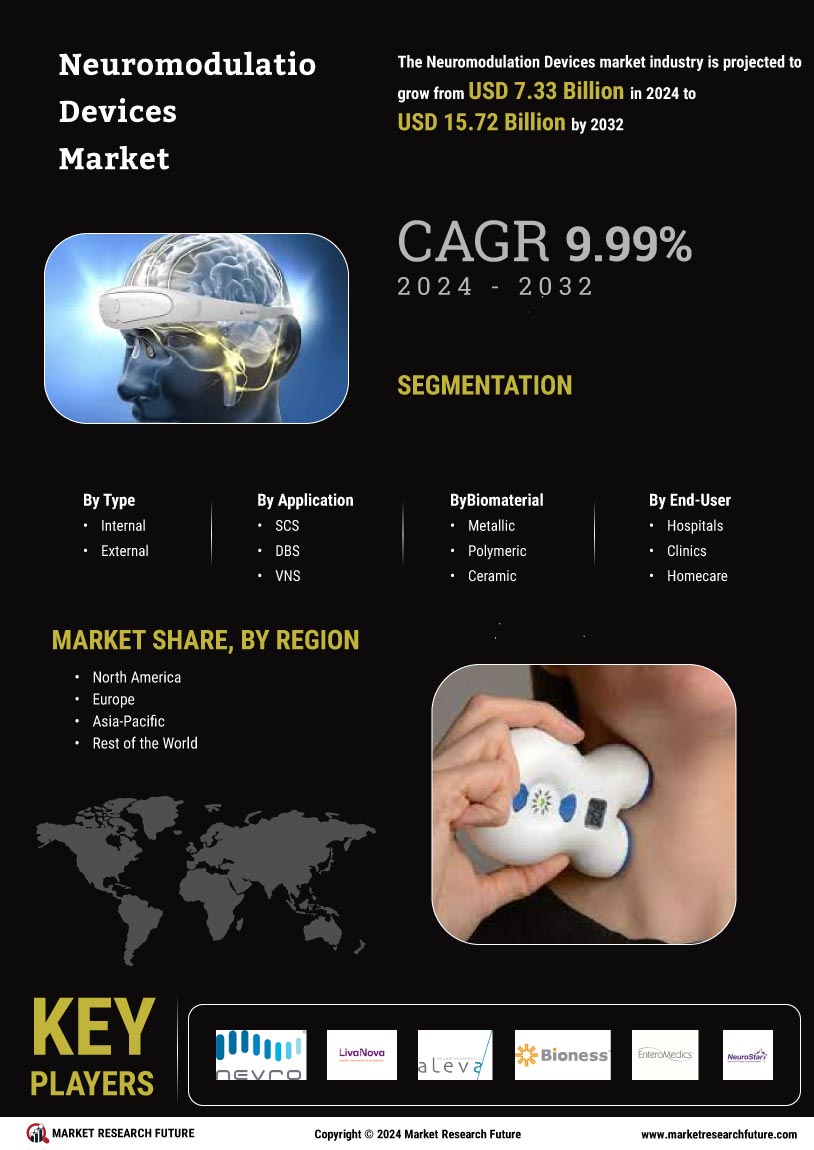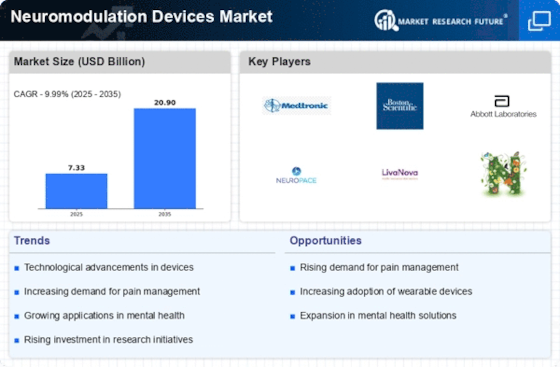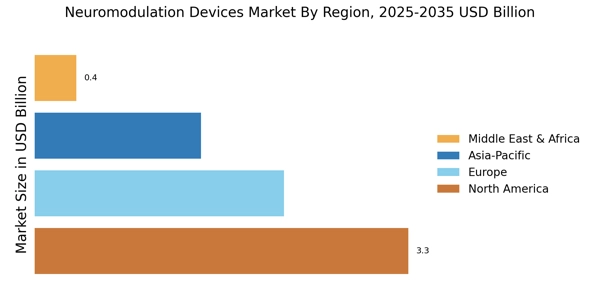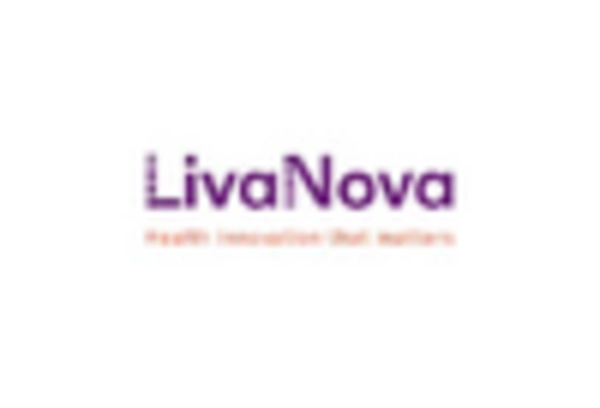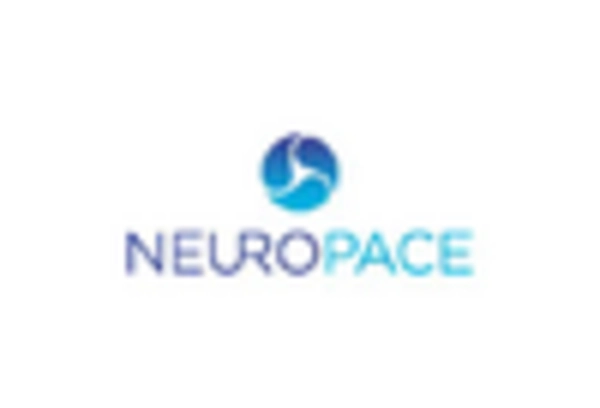North America : Innovation and Market Leadership
North America is the largest market for neuromodulation devices, holding approximately 45% of the global market share. The region's growth is driven by increasing prevalence of neurological disorders, advancements in technology, and supportive regulatory frameworks.
The demand for innovative therapies is further fueled by rising healthcare expenditures and a growing aging population, which is expected to continue driving market expansion.
The United States is the leading country in this region, with major players like Medtronic, Boston Scientific, and Abbott dominating the landscape. The competitive environment is characterized by continuous innovation and strategic partnerships among key players.
The presence of advanced healthcare infrastructure and significant investment in research and development further solidifies North America's position as a leader in the neuromodulation devices market.
Europe : Emerging Market with Growth Potential
Europe is the second-largest market for neuromodulation devices, accounting for approximately 30% of the global market share. The region is witnessing growth due to increasing awareness of neuromodulation therapies, favorable reimbursement policies, and a rise in chronic pain management needs.
Regulatory bodies are actively promoting the adoption of innovative medical technologies, which is expected to enhance market dynamics in the coming years. Leading countries in Europe include Germany, France, and the UK, where key players like LivaNova and Abbott are making significant strides.
The competitive landscape is marked by a mix of established companies and emerging startups, focusing on innovative solutions to meet the growing demand. The presence of robust healthcare systems and ongoing clinical research initiatives further contribute to the region's market potential.
Asia-Pacific : Rapidly Growing Market Segment
Asia-Pacific is an emerging powerhouse in the neuromodulation devices market, holding approximately 20% of the global market share.
The region's growth is driven by increasing healthcare access, rising disposable incomes, and a growing prevalence of neurological disorders. Additionally, government initiatives aimed at improving healthcare infrastructure are expected to further boost market growth in the coming years.
Countries like Japan, China, and India are leading the charge in this region, with a mix of local and international players such as Nuvectra and Stryker. The competitive landscape is evolving, with companies focusing on product innovation and strategic collaborations to capture market share.
The increasing demand for advanced medical technologies is likely to create significant opportunities for growth in the Asia-Pacific neuromodulation devices market.
Middle East and Africa : Untapped Market Potential
The Middle East and Africa region represents a smaller segment of the neuromodulation devices market, accounting for approximately 5% of the global share. However, the market is poised for growth due to increasing healthcare investments, rising awareness of neurological disorders, and improving healthcare infrastructure.
Government initiatives aimed at enhancing healthcare access are expected to drive demand for neuromodulation therapies in the region. Leading countries in this region include South Africa and the UAE, where there is a growing presence of key players like Stimwave and Cala Health.
The competitive landscape is characterized by a mix of multinational corporations and local companies, focusing on expanding their product offerings. As healthcare systems continue to evolve, the potential for growth in the neuromodulation devices market in the Middle East and Africa is significant.
